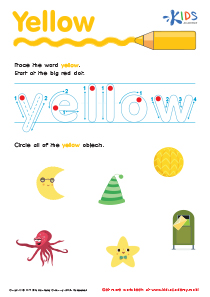Writing practice Normal English for Beginners Worksheets for Ages 6-8
6 filtered results
-
From - To
Our "Writing Practice Normal English for Beginners Worksheets" are designed for young learners aged 6-8 who are starting their journey in English. These engaging worksheets focus on fundamental writing skills, helping children improve their handwriting, vocabulary, and sentence structure. With fun and interactive exercises, kids will develop a strong foundation in English writing, perfect for ESL students or anyone looking to enhance their early writing abilities. Each worksheet is carefully crafted to make learning enjoyable, encouraging children to practice regularly and build confidence in their writing skills. Boost your child's writing proficiency with our expertly designed resources.
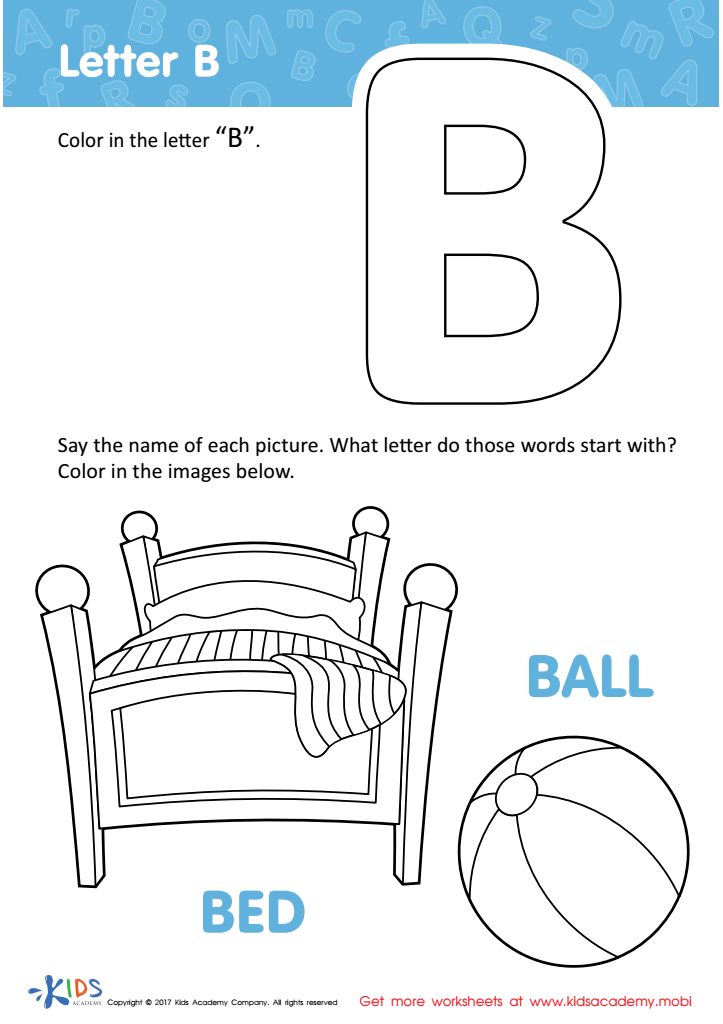

Letter B Coloring Sheet


Letter A Coloring Sheet


Letter H Tracing Page
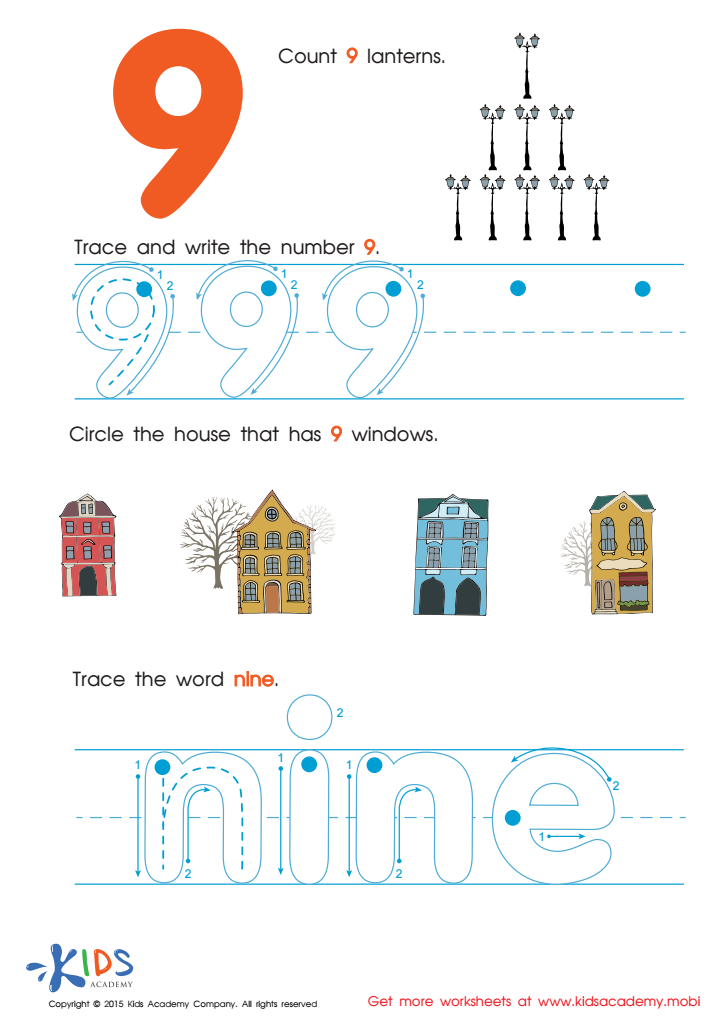

Tracing And Learning to Write Number 9 Worksheet
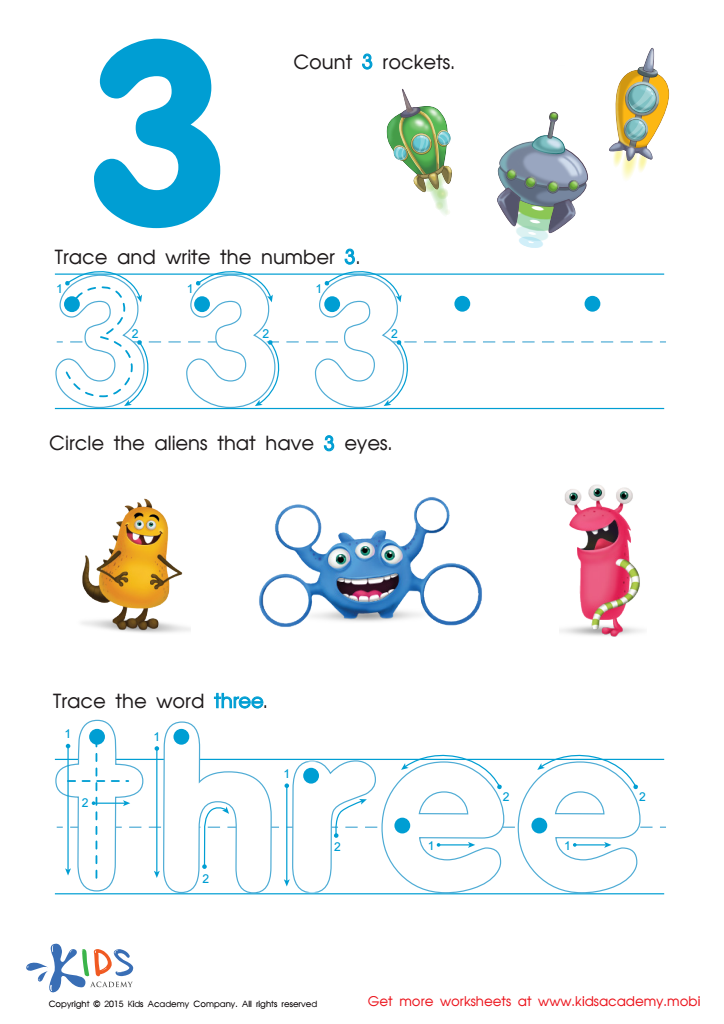

Learning Number Three Worksheet
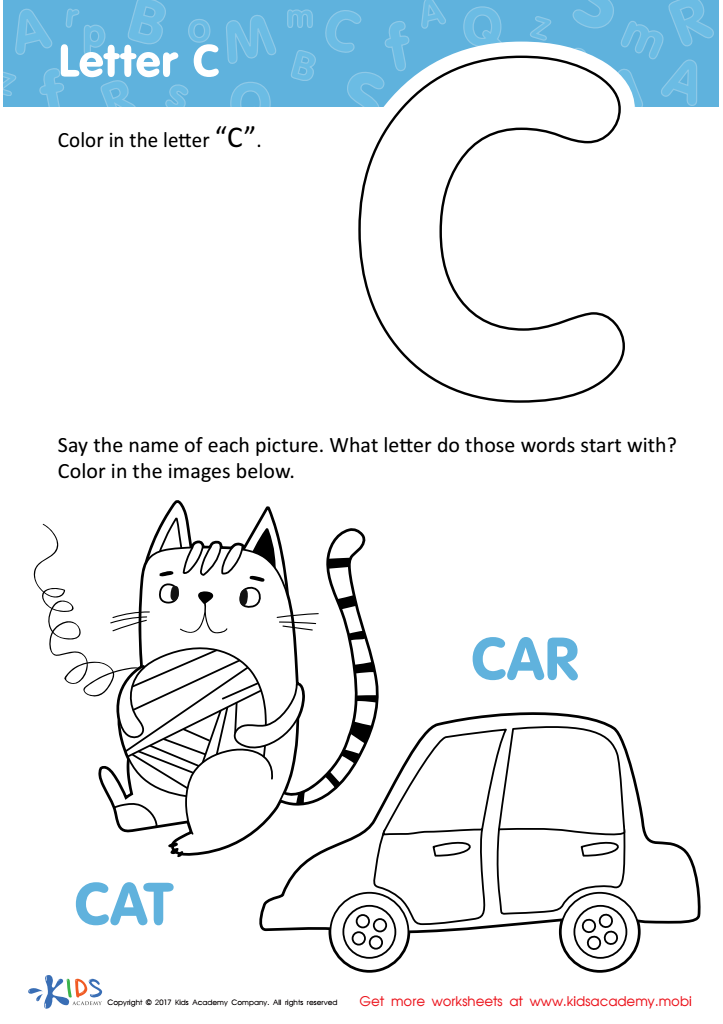

Letter C Coloring Sheet
Writing practice is crucial for children aged 6-8 as it's foundational for their overall academic growth. At this age, children's brains are highly adaptable, making it the perfect time to instill good writing habits. For parents and teachers, prioritizing writing practice helps to develop crucial communication skills. When children practice writing, they learn how to express their thoughts and ideas clearly, which is vital for academic success in all subjects.
Moreover, writing fosters creativity and imagination. When children are encouraged to write stories or describe their experiences, they explore their ability to think creatively and experiment with different ways of expression. This not only nurtures their imagination but also enhances problem-solving skills as they learn to convey complex ideas in simple words.
Writing practice also improves motor skills. For children, the act of holding a pencil and forming letters aids in the development of fine motor skills, which are essential for other activities like drawing, tying shoelaces, and using utensils.
Lastly, writing encourages reading skills. As children get more accustomed to writing, they also become better readers. They begin to recognize words, understand sentence structure, and identify spelling and grammar, which are essential skills for all literacy-based learning. Hence, parents and teachers should care about writing practice to build a solid educational foundation for young learners.
 Assign to My Students
Assign to My Students











